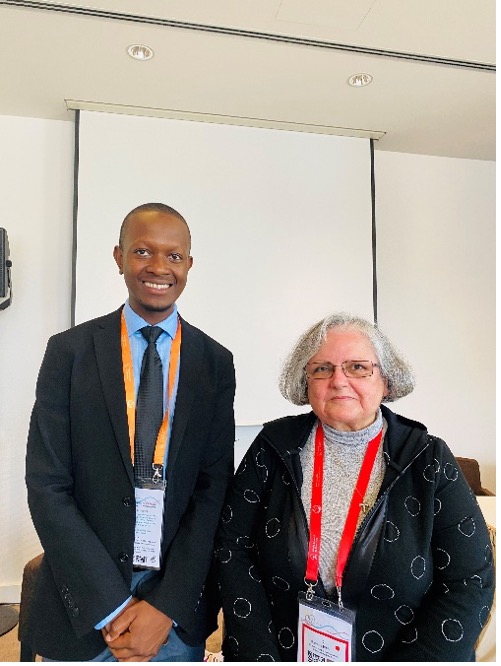Photo credit: World Council of Churches
The World Council of Churches (WCC) is the biggest ecumenical body in the world with 352 member churches in over 120 countries representing over 580 million Christians worldwide. JPII Leader, Evans Nyamadzawo, attended the WCC’s 11th Assembly in Karlsruhe, Germany with the support of a grant through the JPII Center. With the theme of “Christ’s Love Moves the World to Reconciliation and Unity,” this assembly was attended by more than 4000 people from all over the world and included opening remarks from the president of Germany.
Evans was a Home Group Facilitator and a Global Ecumenical Theological Institute (GETI) 2022 participant at the Assembly in Karlsruhe. The focus of GETI 2022, an ecumenical theological education event for emerging ecumenical theologians and educators, was “Christ’s Love (Re)moves Borders.” The six themes of GETI2022 were: Healing Memories, Kairos for Creation, Witness from the Margins, Engaging with Plurality, Body Politics, and 4th Industrial Revolution & AI.

Evans co-facilitated a Home Group with Dr. Theodora Issa, a member of the Central Committee of the WCC during the Assembly. “I facilitated 5 sessions on 5 different days,” shares Evans, “It was a great experience having profile people in my group and leading discussions to further explore matters arising from the plenary.”
“One of the key highlights during the assembly,” Evans says, “was the continuous efforts by the WCC to promote interreligious dialogue.” Evans was particularly drawn to the addresses during the plenary session by Professor Azza Karam, the General Secretary for Religion for Peace, and Rabbi David Fox Sandmel, the Chair of the International Jewish Committee for Interreligious Consultations.
The support of the Russell Berrie Fellowship and the JPII Center were important in preparing Evans for this WCC Assembly: “My experience in interreligious dialogue, especially my experience as a Russell Berrie Fellow, helped me to bring vibrant contributions related to engaging with plurality, a new topic since WCC’s main goal is Christian unity.”
“The Assembly was one of the places I felt that race, sex, nationality, and church affiliation were invisible: we were just one big family,” says Evans. “The major highlight is the fact that Christ’s love goes beyond Christian circles; it is for the whole of humanity.”
